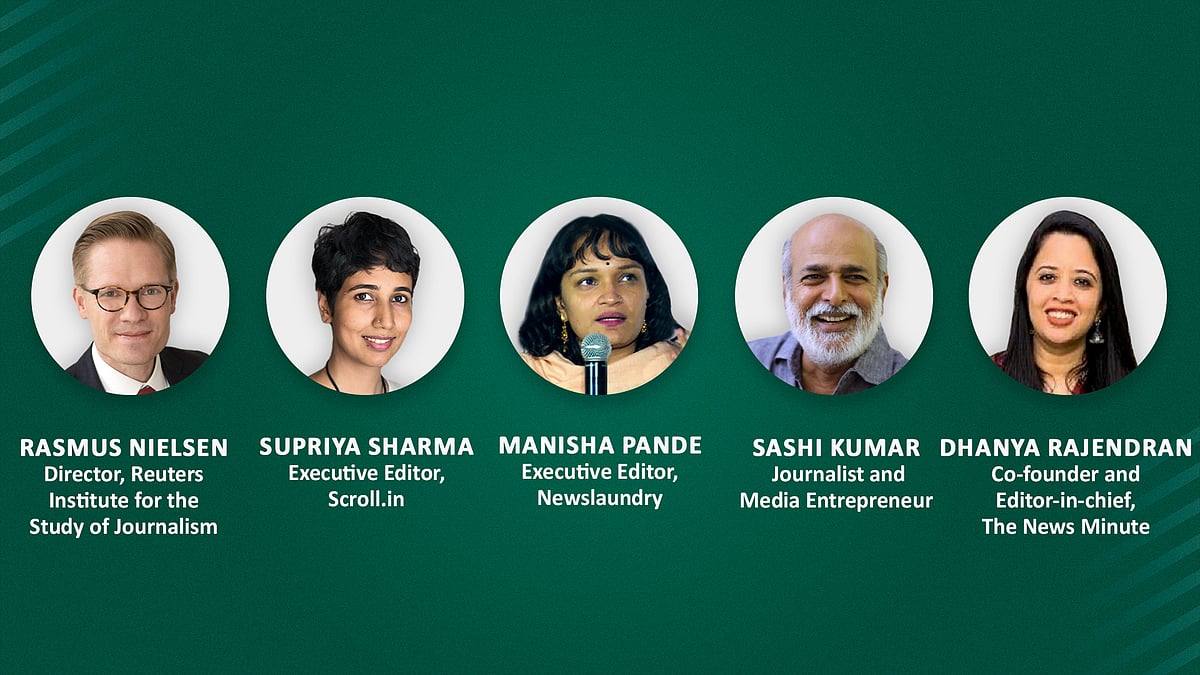Modi supporters are more ‘trusting’ of news coverage in India, finds Reuters research
The survey, undertaken in India, Brazil, US and UK, found that Republic and Zee News are the ‘most polarising brands’ in India.
“Attitudes toward political leaders are strongly correlated with levels of trust in news,” a recent report by the Reuters Institute for the Study of Journalism has found.
The report, titled Overcoming Indifference: What Attitudes Towards News Tells Us About Building Trust, was released today. Published by the Reuters Institute with the support of the Facebook Journalism Project, it’s the third installment from the Trust in News Project, which studies the level of trust people repose in digital news. (See their previous reports here and here.)
Using survey data from Brazil, the US, the UK and India, the report examines three groups based on their varying degrees of trust in news: the “generally untrusting”, the “selectively trusting”, and the “generally trusting”. The surveys were done by three independent firms – Datafolha in Brazil, Internet Research Bureau, and Kantar in the US and UK – in May and June this year.
The survey samples comprised approximately 2,000 respondents per country, broadly representative of each country’s overall population. Surveys were conducted online in all countries except Brazil, where respondents were interviewed over the phone.
In India, the report found that those who evaluated prime minister Narendra Modi “favourably” were “much more likely to be generally trusting towards news than untrusting”. A similar correlation was found in the UK with respect to those who “favourably” evaluated Boris Johnson, while the opposite was true in the US and Brazil. “Positive evaluations of Bolsonaro were associated with the untrusting instead,” it said.
The “primary challenge” facing journalists today, the report said, is “indifference, not hostility”. “The issue here is not so much a deep-seated difference of opinion over the value of news so much as a relative lack of interest in what news is or ought to be,” it said.
Across all four countries, those who “selectively” trust some news organisations are often “the most vocal and angry about news coverage”. In contrast, the “generally untrusting tend to be the least knowledgeable about journalism, the most disengaged from how it is practised, and the least interested in the editorial decisions and choices publishers and editors make daily when producing the news.”
A key finding of the report was that “large minorities” in all four countries “have very negative or cynical views about how they think journalists do their jobs, including allowing personal opinions to influence coverage, accepting undisclosed payment from sources, or deliberately seeking to manipulate the public.”


Indians more trusting towards news on social media
In India, 82 percent of respondents were likely to use messaging apps as a source of news, as opposed to merely 30 percent in the US.
Sixty-five percent of India’s respondents said they “completely” or “somewhat” trusted news on Facebook, as against 42 percent in Brazil, 35 percent in the US, and 29 percent in the UK. Google “ranks highest as the most trusted platform for news” in all four countries.
These findings are in line with trends observed in India, where there’s increased scrutiny in the role of misinformation on social media in leading to instances of hate or violence. Last year, the Delhi government launched an inquiry to examine the role of Facebook in “spreading hate and distrust” in the immediate aftermath of the Delhi riots in February.
The report also found that the lack of trust in news may be driven partly by factors external to the news itself. So, the untrusting were found to be less supportive of free expression and, in some instances, favoured government censorship.
‘Journalists should disclose their political affiliation’
Nevertheless, the level of complete trust in news was the highest in India at around 38 percent, with a large percentage of the respondents saying they trusted all 15 news brands that the survey asked them about. The brands in India were DD News, Times of India, All India Radio, NDTV 24x7/NDTV India, Hindustan Times, Zee News, Aaj Tak, the Hindu, Times Now, Dainik Bhaskar, Dainik Jagran, Republic TV/Republic Bharat, Amar Ujala, the Telegraph, and Malayala Manorama.

Interestingly, in India, the “most polarising brands” were Republic TV/Republic Bharat, which is “trusted by 85 percent of Bharatiya Janata Party supporters but by only 50 percent of others”, and Zee News, “trusted by 85 percent of BJP supporters compared to 63 percent of non-supporters”. “Trust in NDTV was relatively high across the board,” the report said, “trusted somewhat or completely by 75 percent of BJP supporters and by 81 percent of all others.”
The survey also found that those who were upper caste, Hindu, or affiliated to the BJP were less likely to be cynical about news coverage.
A majority of the respondents in India also felt that journalists should disclose their political affiliation. This view held true even for those who were most trusting towards news.
Dr Benjamin Toff, senior research fellow at the Reuters Institute and lead author of the report, said that the “untrusting default to scepticism, even cynicism, about news sources and hold a dim view about how most journalists do their jobs”.
“Winning over this sizable, disengaged, and indifferent audience is a distinct challenge from building trust,” he said in a press release, “with the loudest and often most partisan voices who are typically the most outspoken critics of journalism.”
 Indian journalists top global list of 10 'most urgent' cases of journalists under attack
Indian journalists top global list of 10 'most urgent' cases of journalists under attack Trust deficit, online shift: Newslaundry discusses Reuters Institute’s Digital News Report 2021
Trust deficit, online shift: Newslaundry discusses Reuters Institute’s Digital News Report 2021